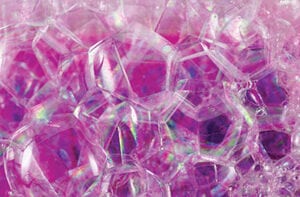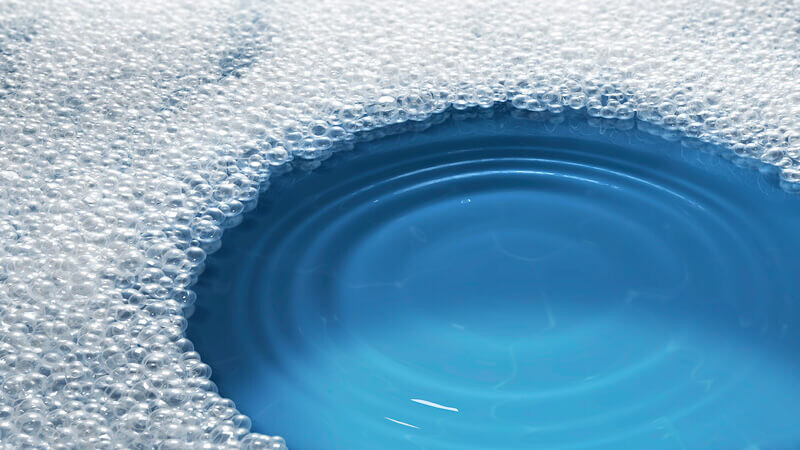The Application of Defoamers in the Pulp and Paper Industry
The Application of Defoamers in the Pulp and Paper Industry
Blog Article
The Role of Defoamers in Enhancing Item Quality and Efficiency
Defoamers offer as important ingredients that mitigate this problem, guaranteeing smoother manufacturing process while boosting the useful and aesthetic attributes of the last items. The selection of the suitable defoamer can be critical to achieving optimum results, raising essential concerns regarding solution compatibility and performance metrics that merit further expedition.
Understanding Defoamers
Recognizing the function of defoamers is necessary for maintaining product quality across various industries. Defoamers are chemical additives created to decrease and protect against the development of foam in fluid systems, which can negatively impact procedures such as mixing, filling up, and surface area tension. Lathering can cause inadequacies, item issues, and compromised visual charm, making defoamers a crucial part in producing operations.
In industrial applications, defoamers aid to improve item uniformity and security. The efficient use of defoamers not just makes certain smoother production processes however additionally contributes to superior product efficiency.
Furthermore, the choice and formula of a defoamer have to straighten with details application requirements, such as compatibility with various other components, performance under varying temperature and pH conditions, and possible regulative restraints. Ultimately, recognizing defoamers' features and their significance in different formulations is critical for enhancing production and making sure the highest top quality final result.
Kinds Of Defoamers
Defoamers can be classified into numerous kinds based upon their structure and mechanism of activity. The main kinds consist of silicone-based, non-silicone natural, and inorganic defoamers.
Silicone-based defoamers are amongst one of the most efficient, mostly due to their ability to spread promptly on the fluid surface and interrupt foam development. Their distinct chemical structure permits premium security, making them ideal for high-temperature applications and atmospheres with differing pH degrees.
Non-silicone organic defoamers, typically made up of fatty acids or all-natural oils, are valued for their biodegradability and lower toxicity. These are typically utilized in food and drink applications where safety and security and ecological influence are critical.
Not natural defoamers, which include compounds like talc or calcium carbonate, act by boosting the thickness of the liquid, thus lowering foam stability. They are typically used in industrial processes where compatibility with other products is not a problem.
Each kind of defoamer has unique advantages and constraints, permitting customized remedies depending on the particular foaming problems encountered in different applications. Recognizing these distinctions is crucial for enhancing performance and achieving preferred product top quality.
Applications Throughout Industries
Numerous sectors take advantage of defoamers to enhance item top quality and functional effectiveness. In the food and beverage sector, defoamers are vital in procedures such as brewing and dairy production to avoid foam development, which can cause inefficiencies and item disparity. By managing foam, suppliers can make certain far better return and a much more uniform item.
In the pharmaceutical sector, defoamers play a crucial role in the solution of fluid drugs, where excessive foam can hamper blending and accurate application. Their use helps preserve the honesty of the formulations and facilitates smoother production processes.
The paint and finishings sector also depends on defoamers to enhance the efficiency of products throughout application. By reducing foam, these ingredients ensure a smoother surface and boost the visual high qualities of the last item.

Advantages of Making Use Of Defoamers
While the application of defoamers differs throughout sectors, their benefits regularly boost item high quality and procedure effectiveness. One considerable benefit is the reduction of foam formation during manufacturing processes, which can or else cause manufacturing delays and disparities in product top quality. By decreasing foam, defoamers make it possible for a smoother circulation of materials, helping with more reliable procedures and decreasing the possibility of equipment breakdowns.
Furthermore, making use of defoamers can improve the look and structure of end products. In sectors such as coatings, paints, and food handling, extreme foam can compromise the aesthetic appearances and total high quality, while the appropriate defoamer application ensures a consistent surface and preferable attributes. Moreover, defoamers can add to cost savings by lowering waste throughout manufacturing and maximizing the usage of raw materials (defoamers).

Choosing the Right Defoamer
Choosing the ideal defoamer is vital for maximizing manufacturing procedures and guaranteeing item top quality. The selection of defoamer affects not just the efficiency of foam control however likewise the overall performance characteristics of the final item. Variables to take into consideration consist of the type of application, the chemistry of the formulation, and the environmental conditions under which the item will certainly be utilized.
Different industries may call for details defoamer kinds, such as silicone-based, organic, or polymeric defoamers. Comprehending the compatibility of the defoamer with the primary active ingredients is necessary to stay clear of negative reactions that can compromise product integrity. Furthermore, the defoamer's efficiency in numerous temperature levels and pH levels need to be evaluated to make certain constant performance.
Testing the defoamer in small-scale applications can provide beneficial insights right into its you can find out more efficiency and viability. Consideration of regulative compliance, specifically in food, pharmaceuticals, and cosmetics, is critical in selecting a defoamer. Inevitably, a comprehensive analysis of these factors will certainly result in the choice of a defoamer that not only controls foam properly however likewise enhances the high quality and efficiency of the end product.
Final Thought

To conclude, defoamers are crucial ingredients that substantially improve item top quality and performance throughout various markets. By successfully lowering foam formation, these agents not only boost operational efficiency yet also add to the useful and aesthetic integrity of products. The calculated choice and application of defoamers result in cost savings, optimized resource use, and enhanced customer fulfillment. On the whole, the significance of defoamers in industrial processes can not be overemphasized, as they play a vital duty in attaining regular and premium outcomes.
Frothing can lead to inadequacies, item issues, and endangered aesthetic charm, making defoamers an important element in manufacturing procedures.

Report this page